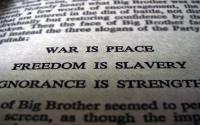31 May 2007Yahoo! NewsTerence Hunt
President Bush envisions a long-term U.S. troop presence in Iraq similar to the one in South Korea where American forces have helped keep an uneasy peace for more than 50 years, the White House said Wednesday.
The comparison was offered as the Pentagon announced the completion of the troop buildup ordered by Bush in January. The last of about 21,500 combat troops to arrive were an Army brigade in Baghdad and a Marine unit heading into the Anbar province in western Iraq.
Brig. Gen. Perry Wiggins, deputy director of operations for the Joint Chiefs of Staff, said there are now 20 combat brigades in Iraq, up from 15 when the buildup began. A brigade is roughly 3,500 troops. Overall, the Pentagon said there are 150,000 U.S. troops in Iraq. That number may still climb as more support troops move in.
The administration warns that the buildup will result in more U.S. casualties as more American soldiers come into contact with enemy forces. May already is the third bloodiest month since the war began in March 2003. As of late Tuesday, there were 116 U.S. deaths in Iraq so far in May — trailing only the 137 in November 2004 and the 135 in April 2004. Overall, more than 3,460 U.S. service members have died.
Presidential spokesman Tony Snow said Bush has cited the long-term Korea analogy in looking at the U.S. role in Iraq, where American forces are in the fifth year of an unpopular war. Bush's goal is for Iraqi forces to take over the chief security responsibilities, relieving U.S. forces of frontline combat duty, Snow said.
"I think the point he's trying to make is that the situation in Iraq, and indeed, the larger war on terror, are things that are going to take a long time," Snow said. "But it is not always going to require an up-front combat presence."
Instead, he said, U.S. troops would provide "the so-called over-the-horizon support that is necessary from time to time to come to the assistance of the Iraqis. But you do not want the United States forever in the front."
The comparison with South Korea paints a picture of a lengthy U.S. commitment at a time when Americans have grown weary of the Iraq war and want U.S. troops to start coming home. Bush vetoed legislation that would set timetables for U.S. troop withdrawals, and forced Congress to approve a new bill stripped of troop pullout language.
Asked if U.S. forces would be permanently stationed in Iraq, Snow said, "No, not necessarily." He said that the prospect of permanent U.S. bases in Iraq were "not necessarily the case, either."
Later, Snow said it was impossible to say if U.S. troops would remain in Iraq for some 50 years, as they have in South Korea. "I don't know," he said. "It is an unanswerable question. But I'm not making that suggestion. ... The war on terror is a long war."
South Korea is just one example of U.S. troops stationed more than a half-century after war. Germany and Japan are two other examples. American forces are deployed in roughly 130 countries around the world, performing a variety of duties from combat to peacekeeping to training foreign militaries, according to GlobalSecurity.org, a defense-oriented think tank.
In South Korea, about 29,500 U.S. troops are stationed as a deterrent against the communist North, but that number is to decline to 24,500 by 2008 as part of the Pentagon's worldwide realignment of its forces. The two Koreas remain technically at war since the 1950-53 Korean War ended in a cease-fire, not a peace treaty.
Adm. William Fallon, the top U.S. commander in the Middle East, seemed a surprising choice when he got the job earlier this year, yet his experience as U.S. commander in the Pacific overseeing the Korean peninsula would serve him well if the U.S. military adopts a Korea model in Iraq.
___
AP writer Lolita C. Baldor contributed to this report from the Pentagon.






